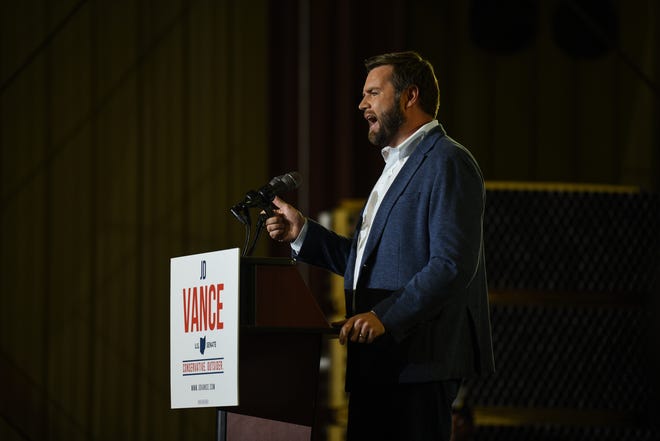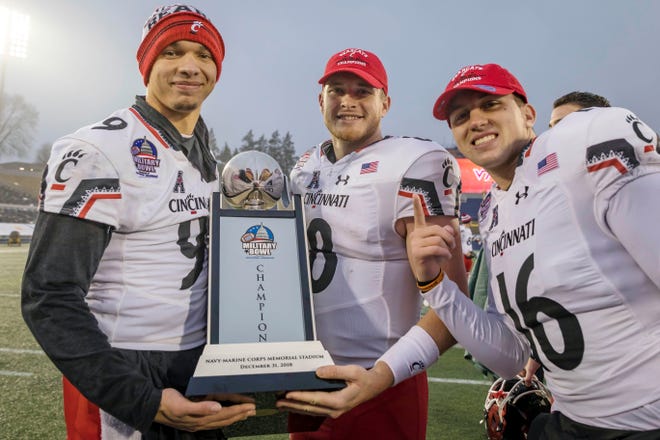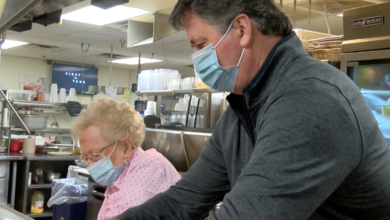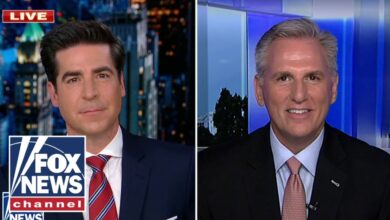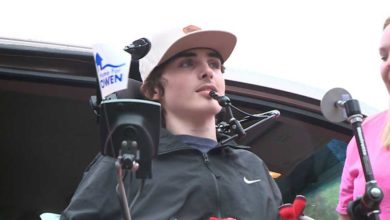PHILADELPHIA – Pennsylvania’s highest court overturned Bill Cosby’s sex assault conviction Wednesday, and Cosby was released from a state prison hours later.
The stunning reversal of fortune for the 83-year-old Cosby, once beloved as “America’s Dad,” happened after the court found an agreement with a previous prosecutor prevented him from being charged in the case. It also shut down the possibility of a third trial in the case, according to prosecutors.
Cosby was convicted in 2018 of drugging and molesting Temple University employee Andrea Constand at his suburban Philadelphia estate in 2004.
He was charged in late 2015, when a prosecutor armed with newly unsealed evidence — Cosby’s damaging deposition from her lawsuit — arrested him days before the 12-year statute of limitations expired.
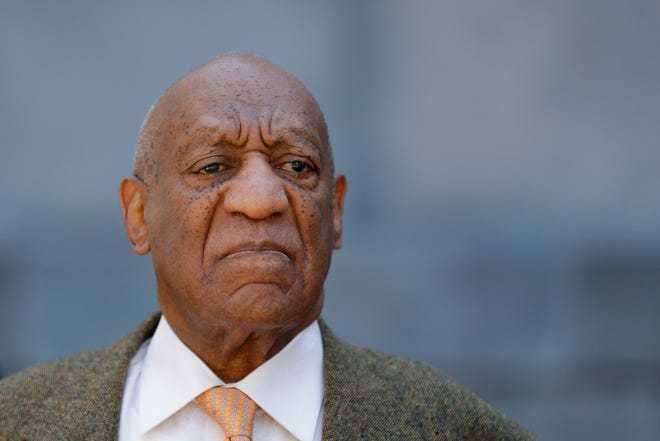
Gloria Allred, the women's rights attorney who represents dozens of Cosby accusers, said in a statement to USA TODAY that the court's decision "must be devastating" for his accusers but it was not a vindication of Cosby's conduct.
"Despite the Pennsylvania Supreme Court’s decision, this was an important fight for justice and even though the court overturned the conviction on technical grounds, it did not vindicate Bill Cosby’s conduct and should not be interpreted as a statement or a finding that he did not engage in the acts of which he has been accused," her statement said.
How long has Bill Cosby been in prison?
Cosby has served more than two years of a three- to 10-year sentence at a state prison near Philadelphia. He had vowed to serve all 10 years rather than acknowledge any remorse over the encounter with Constand.
Why did the Pennsylvania Supreme Court overturn Bill Cosby's conviction?
The trial judge had allowed just one other accuser to testify about alleged and uncharged crimes at Cosby’s first trial in 2017, when the jury deadlocked. However, he then allowed five other accusers to testify at the retrial about their experiences with Cosby in the 1980s.
When the Pennsylvania Supreme Court accepted Cosby's appeal, it did so citing only two issues, including whether Cosby's second trial was tainted by the testimony of "prior bad acts" accusers.
A lower appeals court had found introducing those witnesses was appropriate to show a signature pattern of drugging and molesting women. Cosby's lawyers argued that such testimony was more prejudicial than probative, thus violating trial rules.
But the high court's decision focused on the second issue – whether a previous prosecutor's decisions precluded Cosby from being criminally prosecuted.
"If (Cosby) is correct that the Commonwealth was precluded from prosecuting him, then the question of whether the prior bad act testimony violated (trial rules) will become moot," the decision said.
On that issue, the court found that Cosby's trial was unfair because prosecutors used damaging evidence Cosby turned over in Constand's civil case to convict him of criminal offenses, even though former District Attorney Bruce Castor years earlier told him and the public that those charges were off the table. In effect, the opinion concluded, Cosby was forced to give up his Fifth Amendment right to self-incrimination.
"When an unconditional charging decision is made publicly and with the intent to induce action and reliance by the defendant, and when the defendant does so to his detriment (and in some instances upon the advice of counsel), denying the defendant the benefit of that decision is an affront to fundamental fairness, particularly when it results in a criminal prosecution that was foregone for more than a decade," the decision concluded.
"No mere changing of the guard strips that circumstance of its inequity. … For these reasons, Cosby’s convictions and judgment of sentence are vacated, and he is discharged."
Could Cosby's case affect #MeToo-era cases?
Cosby was the first celebrity tried and convicted in the #MeToo era, so the reversal could make prosecutors wary of calling other accusers in similar cases. The law on prior bad act testimony varies by state, though, and the ruling only holds sway in Pennsylvania.
Kevin Steele, the Montgomery County district attorney who convicted Cosby, said in a statement to USA TODAY that Cosby "now goes free on a procedural issue that is irrelevant to the facts of the crime." He said that due to the decision, Cosby cannot be tried a third time.
"My hope is that this decision will not dampen the reporting of sexual assaults by victims," Steele said in the statement. "Prosecutors in my office will continue to follow the evidence wherever and to whomever it leads. We still believe that no one is above the law—including those who are rich, famous and powerful.”
Cosby's spokesman, Andrew Wyatt, did not immediately return messages seeking comment.
The Pennsylvania justices voiced concern not just about sexual assault cases, but what they saw as the judiciary’s increasing tendency to allow testimony that crosses the line into character attacks. The law allows the testimony only in limited cases, including to show a crime pattern so specific it serves to identify the perpetrator.
In New York, the judge presiding over last year’s trial of movie mogul Harvey Weinstein, whose case had sparked the explosion of the #MeToo movement in 2017, let four other accusers testify. Weinstein was convicted and sentenced to 23 years in prison. He is now facing separate charges in California.
Weinstein's spokesman, Juda Engelmayer, said the reversal in the Cosby case shows that "courts can be relied upon to follow the law and come to the correct decision."
"This decision also reaffirms our confidence that the Appellate Division in New York will reach the similarly correct decision in Harvey Weinstein's appeal, considering the abundance of issues that cry out for a reversal," Engelmayer said in a statement to USA TODAY.
Harvey Weinstein's extradition to Los Angeles on sex-crime charges approved by judge
In Cosby’s case, one of his appellate lawyers said prosecutors put on vague evidence about the uncharged conduct, including Cosby’s own recollections in his deposition about giving women alcohol or quaaludes before sexual encounters.
“The presumption of innocence just didn’t exist for him,” Jennifer Bonjean, the lawyer, argued to the court in December.
Previously:Bill Cosby denied parole after he refuses sex offender treatment program
Cosby previously denied parole
In May, Cosby was denied paroled after refusing to participate in sex offender programs during his nearly three years in state prison. He has long said he would resist the treatment programs and refuse to acknowledge wrongdoing even if it means serving the full 10-year sentence.
This is the first year he was eligible for parole under the three- to 10-year sentence handed down after his 2018 conviction.
Cosby spokesperson Andrew Wyatt called the parole board decision “appalling.”
Prosecutors said Cosby repeatedly used his fame and “family man” persona to manipulate young women, holding himself out as a mentor before betraying them.
Cosby, a groundbreaking Black actor who grew up in public housing in Philadelphia, made a fortune estimated at $400 million during his 50 years in the entertainment industry. His trademark clean comedy and homespun wisdom fueled popular TV shows, books and standup acts.
He fell from favor in his later years as he lectured the Black community about family values, but was attempting a comeback when he was arrested.
“There was a built-in level of trust because of his status in the entertainment industry and because he held himself out as a public moralist,” Assistant District Attorney Adrienne Jappe, of suburban Montgomery County, argued to the justices.
Cosby had invited Constand to an estate he owns in Pennsylvania the night she said he drugged and sexually assaulted her.
Constand, a former professional basketball player who worked at his alma mater, went to police a year later. The other accusers knew Cosby through the entertainment industry and did not go to police.
The AP does not typically identify sexual assault victims without their permission, which Constand has granted.
Contributing: Maria Puente, USA TODAY; Maryclaire Dale, The Associated Press
Source link


